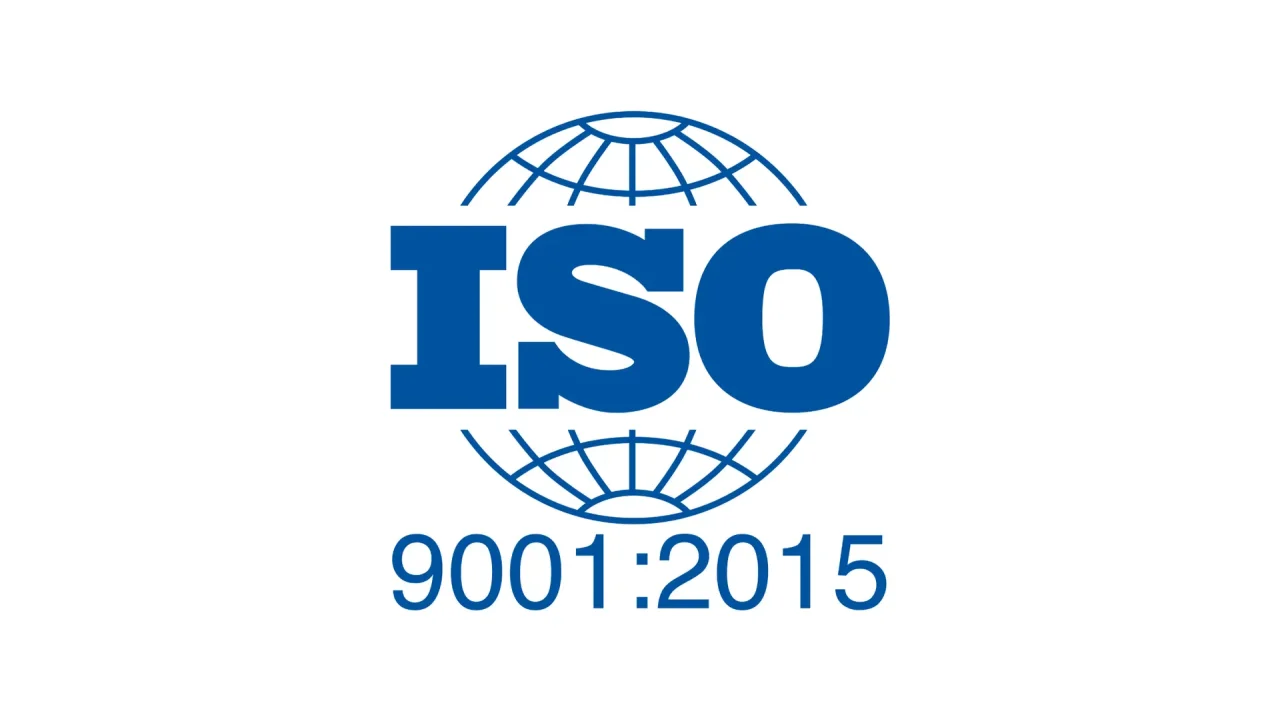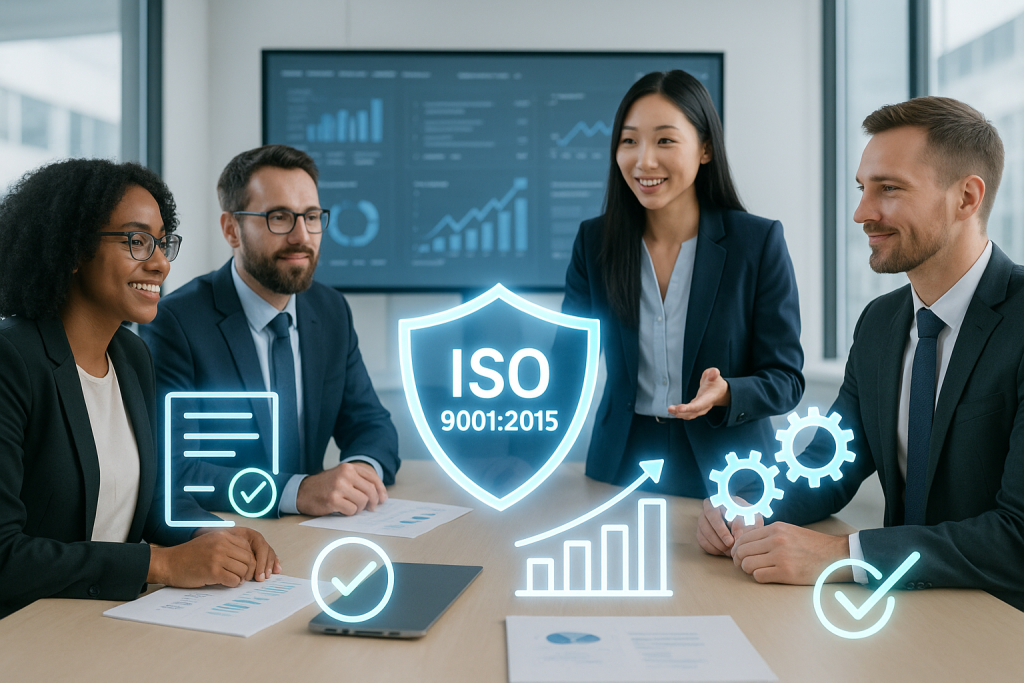ISO 9001:2015

When you buy a product or service, you expect consistent quality. Behind the scenes, one standard ensures that promise is kept worldwide: ISO 9001:2015 quality management compliance.
What is ISO 9001:2015?
It is the international standard for Quality Management Systems. It sets out principles that help organizations consistently deliver products and services that meet customer and regulatory requirements. Think of ISO 9001 as a playbook for quality that focuses on continuous improvement, efficiency, and customer satisfaction.
For more info, here is an ISO overview: ISO 9001 Quality Management.

Why ISO 9001:2015 Quality Management Compliance Feels Complex
Many organizations find ISO 9001:2015 quality management compliance challenging because it requires defining and documenting processes across the business, measuring performance with quality objectives and KPIs, training employees on quality responsibilities, managing risks and opportunities systematically, and being ready for regular external audits. It is not just paperwork, it is embedding quality into every business process.
Core Principles of ISO 9001:2015
ISO 9001 is built around seven quality management principles:
- Customer Focus Prioritize customer needs and satisfaction
- Leadership Create strong direction and accountability
- Engagement of People Empower and involve employees at all levels
- Process Approach Manage activities as interconnected processes
- Improvement Commit to continuous improvement
- Evidence Based Decision Making Use data and facts to drive decisions
- Relationship Management Manage supplier and stakeholder relationships effectively
Risk-Based Thinking in ISO 9001:2015
A central element of ISO 9001:2015 quality management compliance is risk-based thinking. This means proactively identifying potential risks and opportunities that could impact quality, and embedding preventive actions into everyday processes. Instead of reacting to problems, businesses can predict and prevent them.
Risk-based thinking also drives continuous improvement, encouraging organizations to regularly assess their environment, stakeholders, and internal processes to anticipate change.
In practice, this approach can range from simple measures, such as routine process reviews and checklists, to more advanced strategies like data-driven analytics, scenario planning, and cross-functional risk assessments. Ultimately, ISO 9001:2015 ensures that quality management is not a one-time effort but a strategic mindset woven into every level of the organization.
Benefits of ISO 9001:2015 Quality Management Compliance
Achieving ISO 9001:2015 quality management compliance shows customers, regulators, and partners that your business values quality and consistency. It helps reduce waste, improve efficiency, enhance customer trust, and open the door to global markets and contracts where certification is a requirement.
Beyond external recognition, ISO 9001:2015 also strengthens internal culture by aligning teams around clearly defined processes and objectives. Employees gain a better understanding of their roles, accountability increases, and collaboration improves across departments. This shared commitment to quality not only boosts morale but also drives innovation, as teams are empowered to identify improvements and contribute to long-term business success.
How Sahl Simplifies ISO 9001:2015 Quality Management Compliance
With Sahl, achieving ISO 9001:2015 quality management compliance becomes easier and less resource-heavy. Our platform automates process documentation, collects audit-ready evidence, tracks KPIs in real time, and reduces manual effort in quality reporting.
By streamlining compliance tasks, Sahl not only accelerates certification but also ensures ongoing adherence to ISO 9001:2015 standards. Businesses can focus more on delivering value to customers while maintaining confidence that their quality management system remains effective, transparent, and continuously improving.
Want to see how Sahl's Compliance Automation platform can make ISO 9001 easy?
FAQs
- Who needs ISO 9001?
Any business that wants to improve quality and customer satisfaction can implement it, from manufacturing to IT services. - Is ISO 9001 mandatory?
Not legally, but many industries and contracts require it to win customers and partners. - How long does certification take with Sahl?
Traditional certification may take months. With automation, businesses shorten preparation time significantly. - Does ISO 9001 only apply to manufacturing?
No, it applies across industries, including finance, healthcare, IT, and services. - How often is ISO 9001 certification renewed?
Organizations must renew certification every three years, with annual surveillance audits to ensure ongoing compliance. - Does ISO 9001 work for small businesses?
Yes. ISO 9001 is scalable and can be tailored to fit the needs of small startups as well as large enterprises.

